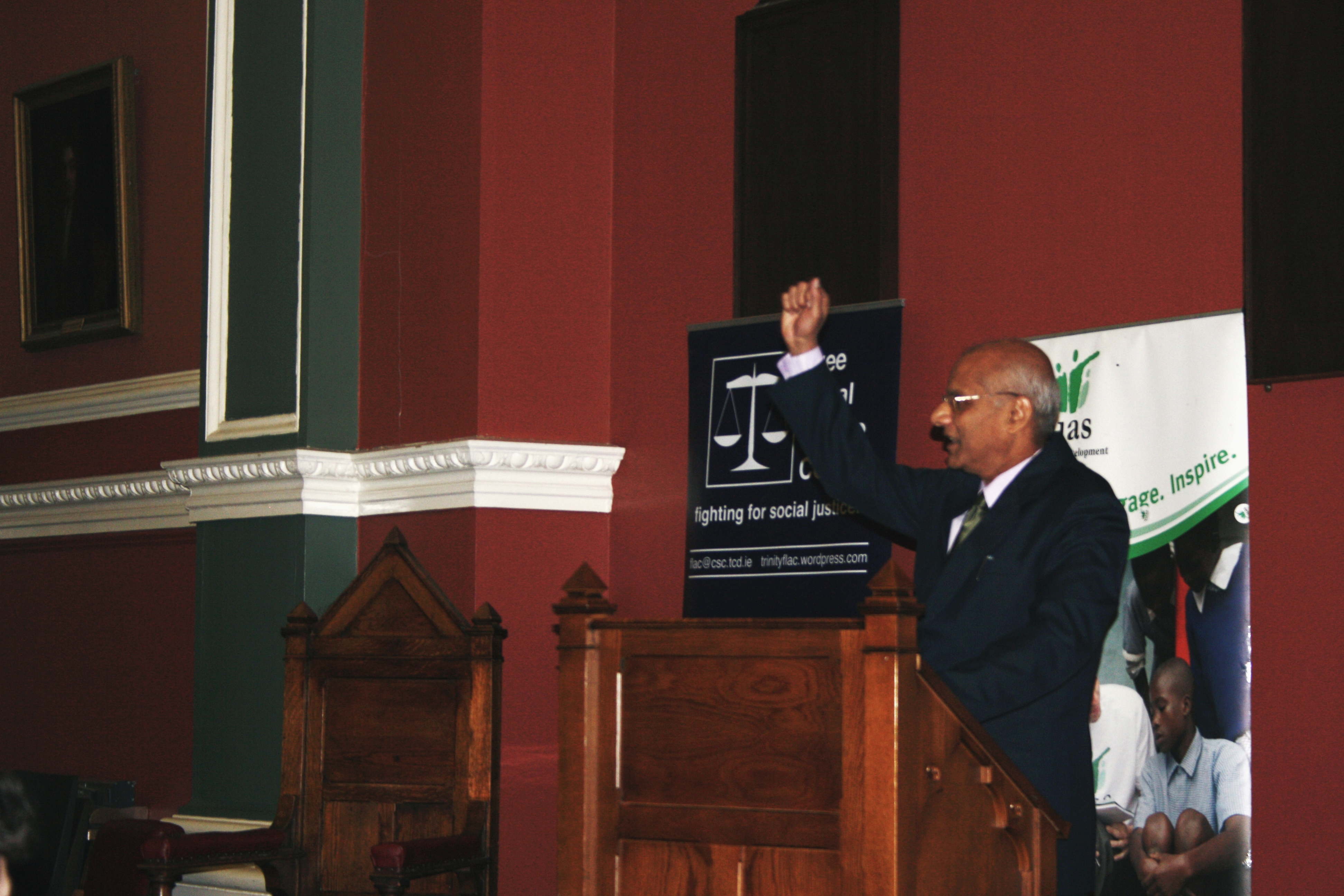
Gonsalves announced that he was “pleasantly surprised” by the same sex marriage referendum result in Ireland. He commented on the strength of the result and described it as “an eye opener for us in India.” Comparing the attitudes of his native country, Gonsalves described India as “a very conservative country with some backward views on sexuality.”
Gonsalves spoke about the mass mobilisation of the poor and how that is a mechanism by which real change is brought about in societies like India where he said 80% of the population lives on less than around one euro a day. Speaking on this he proposed that “a time will come when the young in India say enough is enough.”
In relation to this he reflected on the Indian struggle against British colonialism. Gonsalves described the impression that the Indian struggle had been a peaceful one as “the greatest myth ever told” and said it was “an intensely violent movement.”
Reflecting also on the 1916 Rising, Gonsalves told listeners that he had enjoyed a historical tour of Dublin and said he had learned of the economic circumstances of people in Ireland at the time of the rising. He believed that it was “not just the nationalist sentiment but economic circumstances also” that had led to the rising. He likened this factor to the struggle in India. However, he contrasted the experiences of the two countries by saying that Ireland had managed to achieve a compromise with the British while in India he claimed “we see no end in sight.”
The reason for this, he explained, was that in India “the elite took over from the elite” and that Indians then experienced an “even more intense kind of oppression from the people who took over from the British.”
Turning to what he described as the revolution that has taken place in law, Gonsalves spoke about his own work in constitutional law and public interest litigation. Referring to the many cases he has been involved in, Gonsalves stressed the importance of Article 21 of the Indian constitution, which states that: “No person shall be deprived of his life or personal liberty except according to procedure established by law.”
Gonsalves explained its importance to his cases by pointing out that while the Indian constitution does not contain the right to food, a house or a clean environment, it is through Article 21 that the courts can rule on these cases.
Gonsalves ended his address by speaking passionately about his belief in the power of constitutional law, saying that it is “a sword to attack injustice” and “a shield to protect the poor.”
Speaking on behalf of the hosting societies, secretary of Suas Trinity, Kevin Keane, said bringing Gonsalves to speak was “very much a team effort” and he thanked FLAC who he said were natural partners for the event. After the talk, he described Gonsalves as an inspiring yet “down to earth” man.






